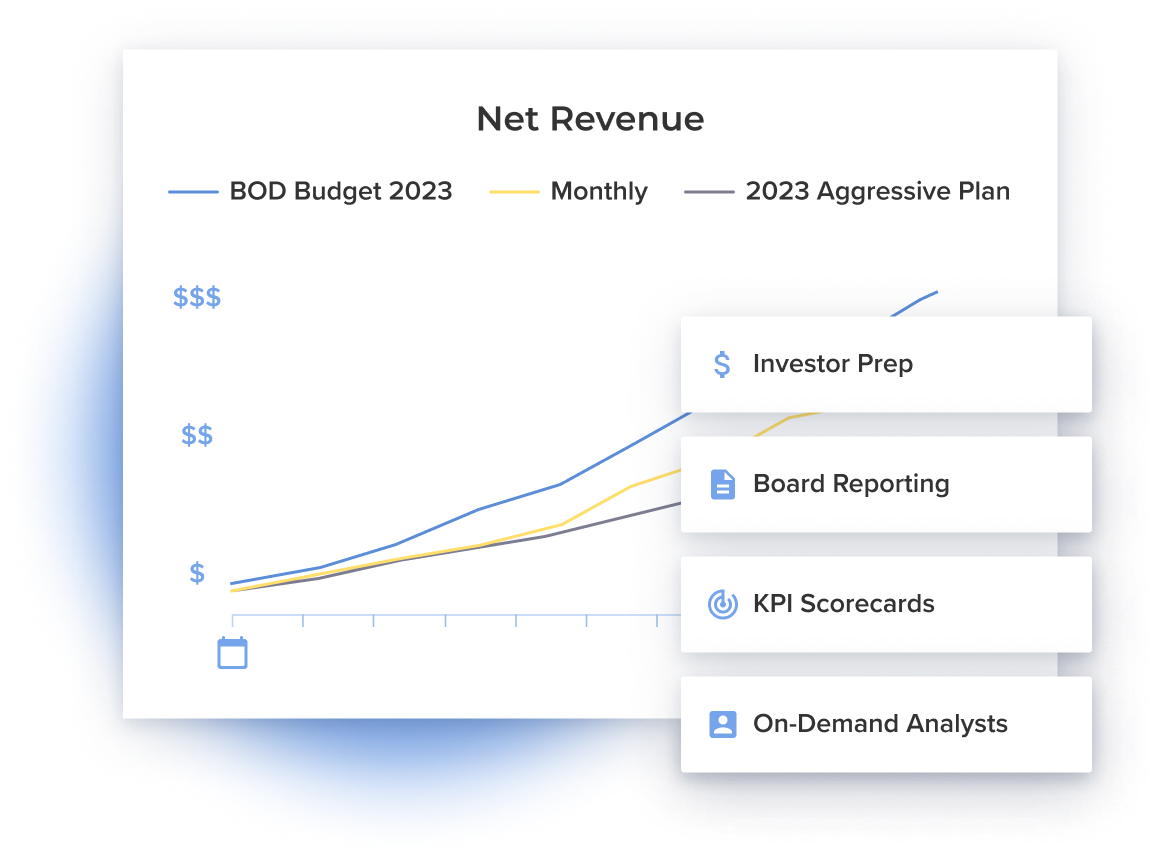👋 Welcome to the third installment of our four-part blog series about the main paths to exit for any DTC business. In part one, we focused on the steps you need to take to prepare for an exit. In part two, we explored the DTC IPO exit path. Now we’re taking a look at how founders can cash out through an acquisition.
Not all startups are meant to IPO and not all startups should IPO. Yes, ringing the bell at a stock exchange provides for a nice headline and milestone, but going public puts startups under greater scrutiny and stress to meet shareholder expectations. For founders looking to exit, being acquired could prove to be more appropriate while providing a very lucrative payout and less headaches. Acquisitions primarily come in two flavors, strategic and financial.
First, a quick word about fire sales and Acqui-Hires. While usually better for everyone than simply folding up the tent, these aren’t great exits. They may help the founders’ egos and give people jobs, but founders and funders didn’t set out to be acquired at fire sale prices. Don’t get me wrong, if you are looking at the end of the road, an Acqui-Hire or fire sale can be good, but your valuation is hard to influence and deal terms are often presented in take it or leave it manners with tight timeframes.
How you are valued will depend on the acquirer. If you have a strong tech team, you may get X amount per engineer. Other assets that may determine value are your customer list, your brand, and your inventory. If you have an exclusive relationship (e.g. licensing rights or exclusive and coveted supplier) you may get some value there. It’s important to move quickly because your buyer knows time is on their side. Every day your bank account is drained more, so if you are in a position where you have to face this type of deal, don’t dither. Get it done and lick your wounds later.
Exit via Strategic Acquisition
✍️ Strategic acquisitions occur when a larger company in your space, or an adjacent space, decides that your company is exactly what they need to achieve their strategy.
Depending on the size of the acquisition, they could view you as an important brand to add to their portfolio, a provider of unique processes or tech they want but can’t build on their own, or a source of new customers who would be perfect for their other products.
How You Are Valued During a Strategic Acquisition
Acquiring tech or team members basically comes down to build-or-buy math for the acquirer. The harder and longer they calculate it will take them to replicate what you have, the more money they’ll pay for your business.
Acquisitions of brands, where the acquirer believes the brand and its customer base belongs in their company or portfolio, are different. The valuation will reflect how much more money the acquirer thinks they can make with the brand as opposed to without it.
For example, the acquirer’s thesis may be that they can sell a lot of their product to your customer base — so they get your sales combined with their own. They may also believe they can leverage their supply chain, logistics, and buying infrastructure to lower your COGS, reduce fulfillment costs and overhead, or improve ad spend. In this situation, they are likely going to pay you a fraction of that additional value, so you want to keep increasing that additional value to raise your buyout number.
In this type of transaction, everyone will talk about multiples of EBITDA and revenue from comps (comparable transactions) as a way to justify the asking price, but the buyer will have done their math on the additional value they believe they can get. They are then going to discount that number based on how hard and risky they think it will be to achieve it. In some cases, this leads to super high valuations based on comps. But it can often lead to lower valuations than the comp as the buyer may simply find your company attractive only up to a certain price.
Things for DTC Founders to Keep in Mind
☝️ To be successful in this exit path, you have to find out how potential acquirers are thinking about your business. Deals are conversations, so ask questions and play up the potential. Help potential acquirers see other ways to create or increase value. You are trying to de-risk their appraisal of your valuation as well as point out additional value they may not have correctly calculated or even considered.
Prior to the deal stage, you want to build relationships with companies that could be potential buyers. It’s important to find company leaders who can see the additional value you could bring. For example, the CEO of Wal-Mart can’t be bothered with a $20 million transaction. It’s meaningless when considering the scale at which they operate. But the business leader who could realize a 50% increase in revenue or profits from acquiring you will care a lot. So focus your relationship building on the appropriate level. Additionally, business unit leaders with P&L responsibility are often better relationships to have than the corporate development team. The corporate development team plays an important role in transactions, but deals get done because the business unit leaders want the acquisition.
I am not suggesting you spend your days scrolling LinkedIn and reaching out to companies. But pay attention at industry conferences, connect on social networks, and add people to your mailing list. Getting on a company’s deal radar could be as simple as someone internally forwarding your latest email with a note saying they met you two years ago.
Post acquisition life is certainly going to be a change. In most cases, your autonomy, your authority, and your ability to operate as you previously did will all diminish. Your team will likely be pulled away from you and report to new people. You will have new rules, obligations, reports to prepare, and meetings to attend. The short of it is, you need to be willing and flexible enough to live under someone else’s rules. If that’s not you, then it’s best to leave the organization within 12 months of the close of the acquisition if not sooner.
Exit via Financial Acquisition
✍️ Financial acquisitions differ from strategic acquisitions as they occur when a fund, usually a Private Equity (PE) fund, buys a majority and controlling interest in a company.
With this type of deal, you — as the DTC founder — receive cash (hopefully lots of it) and (hopefully) the chance to keep running the company. You will also receive equity incentives which can be structured in ways to keep you and the team working hard to deliver on specified milestones.
The financial buyer (the PE Fund) views your company as an asset. Their plan is simple — buy your business as cheaply as possible and then sell it in three to five years for a lot more money. PE buyers are generally not interested in funding losses. It would take a pretty remarkable exception for them to want to buy a money losing business, so profits are critical if you’re hoping to go down this path. And, as mentioned in our blog post on the subject, rapidly growing durable profits are catnip for PE investors.
Another reason profits are important is because PE funds will often want to use leverage in order to finance their acquisition. Here’s an illustration of how this works: Say a PE fund buys a company for $100 million. The PE fund may actually have only invested $20 million from their fund, and then borrowed the remaining $80 million needed to close the deal. This leverage allows them to significantly juice their returns on their $20 million.
💰 In this example, let’s say the PE fund turns around and sells the company for $200 million a year later. If they had paid all cash, they would have earned a 100% return on their money. Not bad for a year’s work! But because they borrowed most of the money, they instead earned a 900% return (I am ignoring the nominal cost of that debt in this calc). Now you know why PE partners fly private.
PE funds will also have ideas about how they can increase your value faster once they own you. Maybe they view your operating expenses as bloated and know they can improve margins by 5% (they may have more experience in supply chain or logistics and see potential improvements). Paid acquisition expertise can be another immediate boost, as they may calculate that with more advertising spend and greater know-how they can generate more revenue.
Opening a new channel (they know how to take companies omni-channel) is another way to add to the bottom line. Buying smaller companies and combining them to make a bigger company will attract large buyers or another financial firm. PE funds have playbooks and models they rely on to immediately increase value.
How You Are Valued During a Financial Acquisition
Comps are key here. PE buyers are finance pros so they are going to consult comps and models. The comps will set the range for what they are willing to pay. The models will tell them what can happen given the proper execution.
The best way to de-risk a deal is to buy cheap. That in mind, PE buyers are going to walk a fine line of paying just enough so you don’t walk away from the deal. Like the strategic buyer, your goal is to find out how they are thinking about your business and then point out all the extra value they may have overlooked.
You also want to demonstrate strong execution skills. PE funds can’t run the company themselves, they need you to do it. Your track record of hitting planned milestones will be your best friend.
Things for DTC Founders to Keep in Mind
☝️ PE funds are masters of the long game. They will build and nurture relationships over years. Relationships also help them move faster when/if you are ready to exit. So, investing in some simple relationships is worth doing, particularly if you think you may be ready to sell in the next 36 months. And to the point above, you want to show them a track record of growth, margin expansion, strong execution, and hitting goals.
While PE funds don’t want to run the company, they will certainly tell you how to run it. So you need to be prepared for a very different dynamic than what you are used to. They are also good at recruiting strong candidates — so beware that if you screw something up or make life difficult, you will likely be replaced before you know it.
That said, selling to a PE fund provides you and the team with personal cash as well as the ability to earn more. You will also get their financial backing for growth capital to help you realize your vision. This exit path is best for entrepreneurs who can check their ego and are strong and consistent operators.
Be sure to read the final installment of our series examining the business sale exit. And if you’re looking to explore how financial models and data can increase the value of your DTC company, sign up for a Bainbridge demo.











